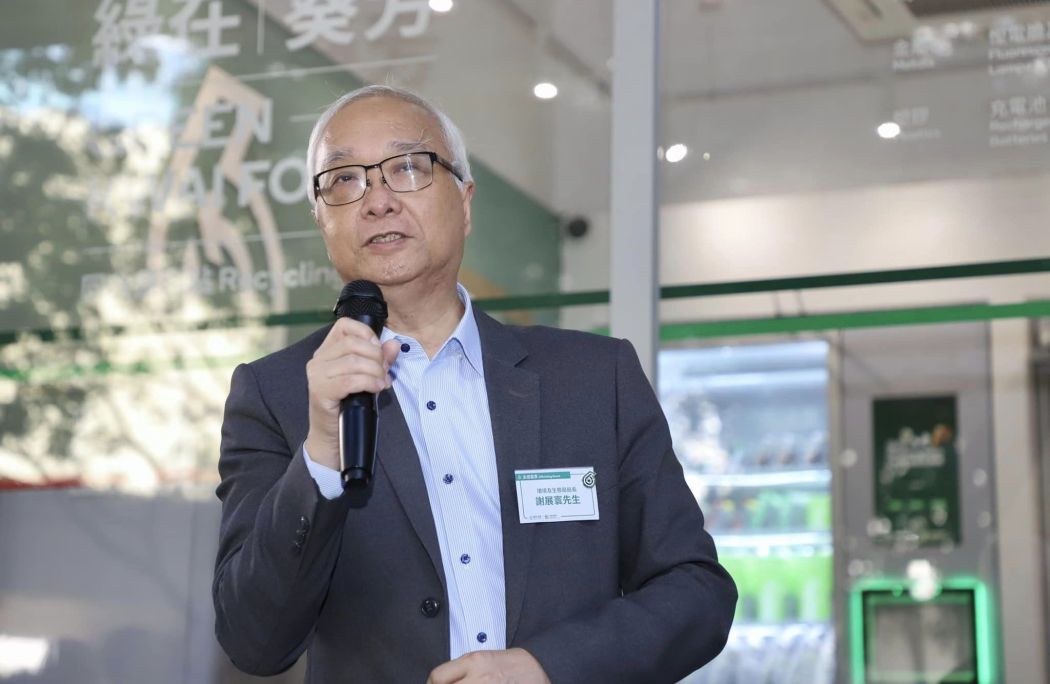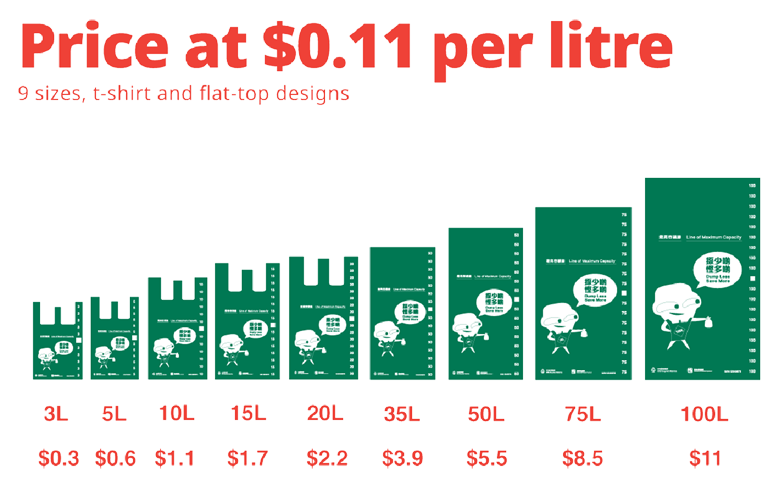Hong Kong’s pay-as-you-throw waste tax would require residents’ “support and cooperation” and could take years to be widely upheld, environmental chief Tse Chin-wan has said.

In an op-ed published by Ming Pao on Monday, the secretary for environment and ecology said the new waste charging scheme was “easy to comply with, civilised and hygienic.” The scheme, which will come into effect on April 1, will require Hongkongers to buy specific plastic bags for waste disposal with an aim to reduce how much is thrown away by each household.
“The waste charging scheme is not a theory, but an empirically proven measure in many advanced societies in the world,” Tse wrote in Chinese. “Not only in the West… Seoul and Taipei have implemented a waste levy based on the use of designated rubbish bags for over 20 years. They have achieved significant results in waste reduction and recycling.”
Under the new scheme, the designated plastic bags will come in nine different sizes, ranging from three to 100 litres, with each litre costing HK$0.11. A household using one 10 or 15 litre bag per day would pay about HK$33 to HK$51 a month in garbage tax.

Residents who fail to dispose of waste using the bags will face a HK$1,500 fine.
Tse said, besides the use of designated bags and putting a label on large household waste such as furniture, rubbish disposal would be “practically the same as before.”
He said that similar arrangements overseas had encouraged people to recycle and the tax could result in a “cleaner, more hygienic and healthy” city.
The designated bags will be available for purchase in supermarkets and convenience stores from February, he added. Authorities would also encourage property management companies to sell the bags.
But Tse also said that people’s “inertia” and long-held waste disposal habits posed challenges to the new garbage tax.

“Society’s support and cooperation are of utmost importance,” Tse said, urging residents to take the initiative to comply with the garbage tax.
“Let’s begin with ourselves, and then encourage our families and friends to engage,” he said. “When the majority of the society are complying with the waste levy, it would create an atmosphere, changing those who have yet to comply.”
He dismissed concerns raised by the property management sector about the difficulties of enforcing the levy and the illegal disposal of waste, saying that the atmosphere would “instantly solve the problems.”
He added that residents had been willing to follow overseas’ regulations on waste disposal during their travels and “there is no fundamental reason why Hongkongers cannot do it ourselves.”
‘Tough’ enforcement
Plans to introduce a waste tax in the city were put forth in 2012 under then-chairperson of the Commission on Sustainable Development Bernard Chan. But it was not until August 2021 that the scheme was passed by the Legislative Council.
After the bill passed, the government said that the waste levy would take effect in 18 months, a timeframe which local green groups slammed as “beyond imagination.”

The authorities have designated a six-month “adjustment period,” during which officers will issue warnings instead of taking enforcement action when the rules are breached.
Green Earth, an environmental NGO, told HKFP last month that while the adjustment period was necessary, “tougher” enforcement was needed to raise public awareness on how to effectively reduce waste.
Support HKFP | Policies & Ethics | Error/typo? | Contact Us | Newsletter | Transparency & Annual Report | Apps
Help safeguard press freedom & keep HKFP free for all readers by supporting our team

LATEST FROM HKFP
HKFP has an impartial stance, transparent funding, and balanced coverage guided by an Ethics Code and Corrections Policy.
Support press freedom & help us surpass 1,000 monthly Patrons: 100% independent, governed by an ethics code & not-for-profit.










